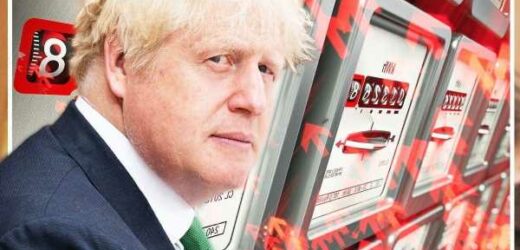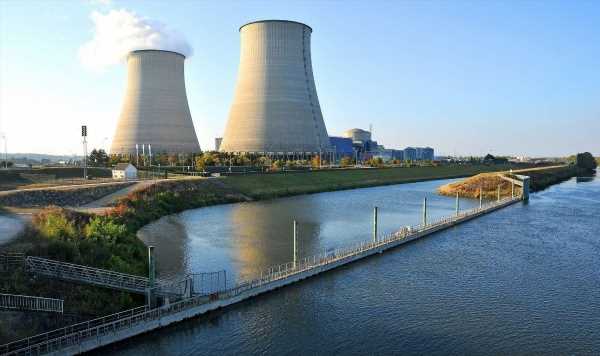Cost of living: Martin Lewis warns government of 'civil unrest'
We use your sign-up to provide content in ways you’ve consented to and to improve our understanding of you. This may include adverts from us and 3rd parties based on our understanding. You can unsubscribe at any time. More info
As the cost of living reaches record highs, the prospect of a windfall tax, which would see a group of energy companies that unexpectedly benefitted from something they were not responsible for paying a one-off tax imposed by the Government, is becoming more tangible. The Prime Minister, while stressing not to be “attracted, intrinsically, to new taxes”, said “we have got to do what we can”.
Mr Johnson said: “No option is off the table, let’s be absolutely clear about that.
“I’m not attracted, intrinsically, to new taxes.
“But as I have said throughout, we have got to do what we can, and we will, to look after people through the aftershocks of Covid, through the current pressures on energy prices that we are seeing post-Covid and with what’s going on in Russia and we are going to put our arms around people, just as we did during the pandemic.”
He added there was “more that we are going to do” but “you’ll just have to wait a little bit longer”.

The Prime Minister’s remarks came shortly before it emerged Chancellor Rishi Sunak has told officials to put together plans for a possible windfall tax on more than £10billion of excess profits by electricity generators, including wind farm operators.
The potential scheme, first reported on Monday, would go well beyond Labour’s original windfall tax plan.
The plan is gaining political support but there’s a worry that it might deter investment.
One Government insider told the FT: “North Sea oil and gas producers are only half the picture.
“The other half is that high gas prices have led to some pretty substantial windfall profits for all electricity generation.”
Windfall taxes 'are not the easy answer to the problem' says Sunak
A return of the £20-a-week increase in Universal Credit has been discussed, too – and seemingly rejected.
Introduced during the coronavirus pandemic and axed in October, the uplift has been viewed as a way of targeting help to the poorest households.
But a Treasury Minister has ruled out bringing it back.
Treasury Chief Secretary Simon Clarke insisted a recovery of the temporary pandemic boost was off the cards, saying: “That is not going to return.”
Speaking on BBC Radio 4’s Today Programme, he explained: “On that question, we were always explicitly clear that was a temporary response to the pandemic.
“The question is how we best now look at the next range of solutions to deal with the challenges we’re facing.”

Pointing to Mr Sunak’s lowering of the taper rate for Universal Credit, he said that was “precisely the kind of authentic Conservative solution to this question that we want to see”.
The taper rate is the amount of Universal Credit that is withdrawn for every pound claimants earn through work, allowing the lowest earners to keep more of their wages.
The Chancellor announced a surprise 8p cut in October – from 63p to 55p.
Mr Clarke said: “That’s a tax cut worth an average of £1,000 to two million of the lowest earners in society.”
But some Tories believe much-needed support for struggling families is being delayed.
Senior Tory backbencher Bernard Jenkin called for a £13.5billion support package of support to ease the cost of living crisis – including the revival of the £20-a-week uplift to universal credit.
He told BBC Essex he did not believe “the Labour party or the Treasury yet get how serious this crisis is”.
Meanwhile, Sir Iain Duncan Smith called a recession the biggest problem the country is facing and stressed it would “hit the poorest the hardest”.
He also criticised the Treasury’s “group think” mentality.
Source: Read Full Article


